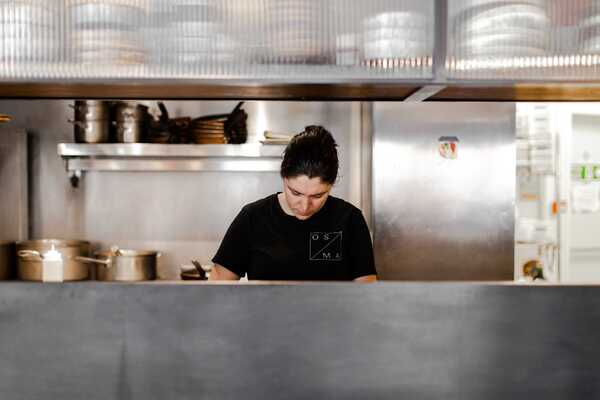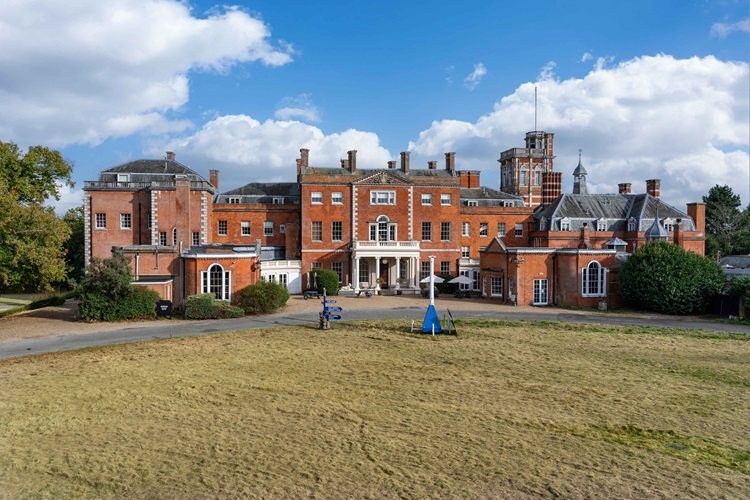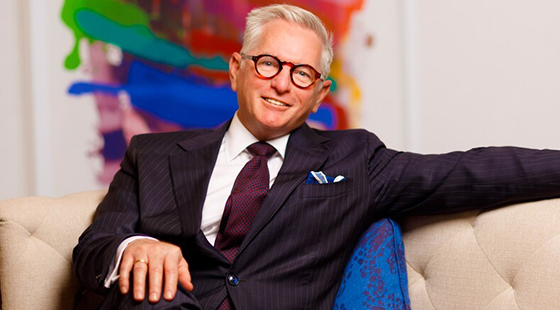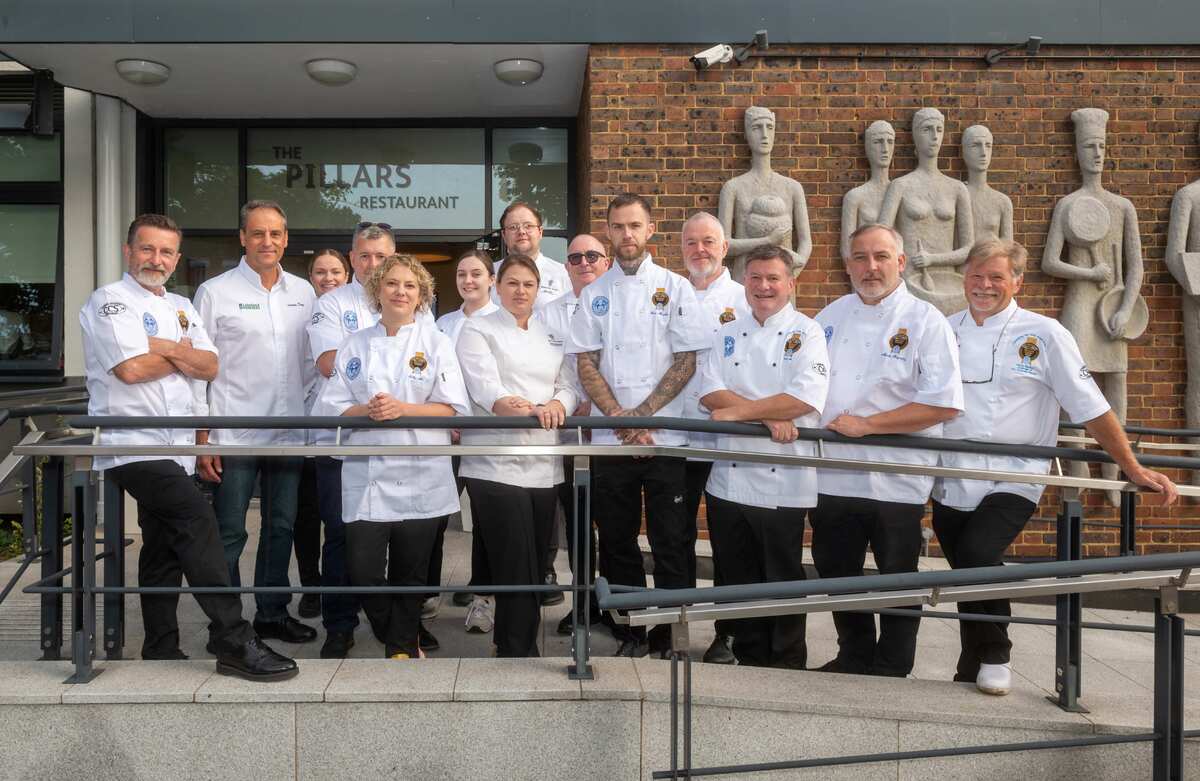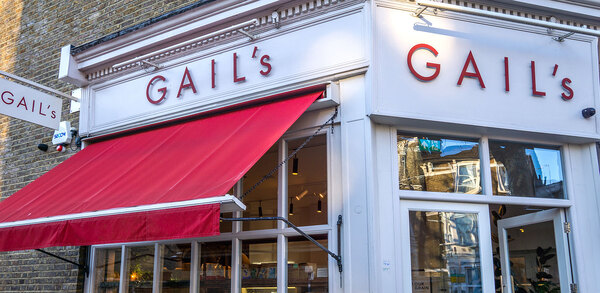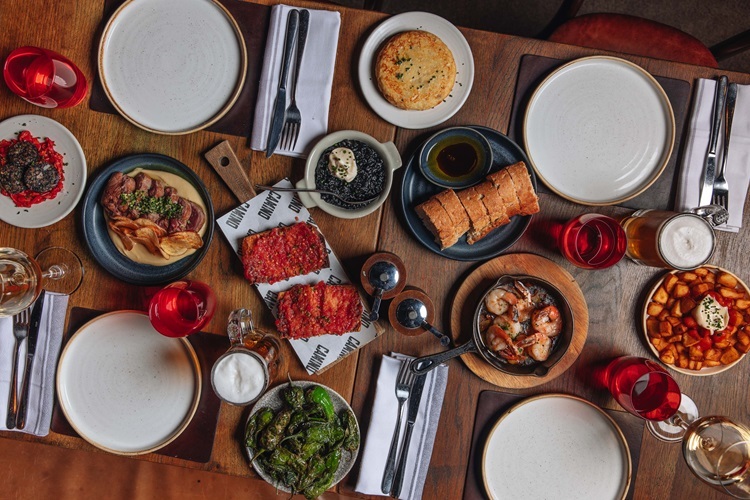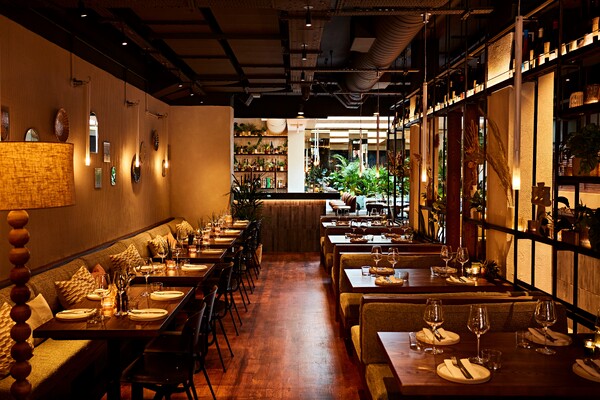Following famous footsteps: How to take over from a big name
Taking over from a major chef or renowned operator seems ideal in some ways: you gain the good name generated by previous good work and the pre-existing wide customer base. However, it can also provide a lot to live up to. Tom Vaughan finds out how Michel Roux Jnr, Colin and Bex McGurran and serial big name follower Alan Murchison have made several tricky transitions
MICHEL ROUX JNR - LE GAVROCHE
In 1991 Michel Roux Jnr took over the reins of London's iconic Le Gavroche restaurant, which at the time sported three Michelin stars, from his father, Albert - it now has two.
Were you groomed to take over Le Gavroche?
I don't know if I set out at 16 with the aim of taking over Le Gavroche. All I wanted was to get stuck in and learn the job.
Taking over wasn't a thought until the mid-1980s, when I came back from my travels. I wasn't groomed, and I didn't spend many years here before I took the job. I wasn't mentored as much as people may think. One thing my father insisted on was a four-month placement in an accountancy firm. How many chefs can cook but can't run a business?
How prepared were you when you took over?
I had a varied lead-up: a hotel in Kong Kong, a three-star environment for three years, and a private house (the Elysée Palace).
I had a very wide spectrum of knowledge, which is vital. To be a great chef you have to understand numbers [of diners] and be able to cook simply.
Did inheriting an iconic name like Le Gavroche come with a burden of responsibility?
Yes, it's hard even now, and I'm nearly 50. We still get the odd punter who says: "Five years ago, when your old man was in the kitchen…".
My dad hasn't been in the kitchen for 15 years. I just smile at them. To be the son of a famous person you've got to have broad shoulders.
How did you make your mark on an institution like Le Gavroche?
It was difficult. For the first three to five years I hardly changed a thing. I thought the menu was a bit staid and had got into a bit of a rut. I was criticised by some regular clients, but nothing had changed except that they were seeing me, not my father. One regular claimed I had changed the cheese supplier for our cheese soufflé! He was talking out of his backside.
Times were changing on the restaurant scene. I thought we were being too conservative. Le Gavroche is a bit like a tanker; it takes forever to turn around. I did turn things around, but only very slowly - I didn't want to alienate our customer base. I tweaked the menu slowly but surely, we stopped the tie rule for men, lightened things up a bit on the service side, and became a bit more customer-friendly. I was enhancing the place and stamping my character on it.
We evolved the menu, but kept it true to its roots. I am very fierce about this: we must stay French and classical in our roots, but that doesn't have to mean heavy or stodgy food. You need classical French food cooked well.
How did you feel when you dropped to two Michelin stars?
It was a blow but deep down I thought it was coming. I wasn't happy with the menu, and Le Gavroche was feeling staid and exclusive, almost like a club. And perceptions of two and three stars were changing.
I'm a big fan of Michelin but in some ways it is wrong in rewarding stars under pressure from the media. Food journalists who've had their palate jaded wax lyrical and say a certain style of cooking is the in thing, but as a diner would you really want to go back for more? That's the true standard by which restaurants should be judged.
Take molecular gastronomy: there are two places in the world doing it well, but lots of wannabes with wild combinations that are tasteless and truly incomprehensible. There's an analogy with wines. Why do New World wines show favourably in blind tastings? Because they are in your face, they punch you on the nose, smack you in the gob. If you taste regularly, your palate becomes jaded and they shine.
Is keeping a place in the family the best way forward?
It's not the only way. In the 1970s and 1980s we had a restaurant empire; now we have an empire of consultancies, but we are discreet about it. We are known for excellence; we actually work as chefs. Too many chefs are not in charge, not on the ball, not in their kitchens.
ALAN MURCHISON - L'ORTOLAN
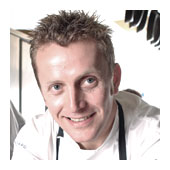
Why L'Ortolan? Were you tempted to change the name when you took over?
L'Ortolan has been known for many years as a quality fine-dining establishment. At a new site you need to establish yourself in the area, build up a reputation, and put energy and effort into PR and marketing yourself.
It takes years to create a brand. L'Ortolan has always stood for quality, it's a very strong brand and at the time was one of only a handful of two-star restaurants. For us it was a benefit to keep the name, we just had to make sure we put our own angle on it.
How did you treat the restaurant - did you keep the design and the food the same or did you want to put your own mark on it?
I cooked under John Burton Race and learnt a lot of things from him - some good, some bad - and we were determined to make sure people knew the standard was still there. But it was a completely different style and atmosphere.
The key is to exceed people's expectations and leave them wanting more; that was our mission statement in 2001 and it is still the same now. We changed the atmosphere, we tried to have a more relaxed service and keep the trappings of fine dining put in more informal surroundings.
Was there a danger of over-spending in a bid to keep standards up to two-star level?
We spent a lot on a redesign - in trying to get it right we overspent, to be honest - but it was a difficult question, whether or not to maintain the standards set before us. It was a few years before we got the spend down through rigorous business models.
How did moving into La Becasse compare?
It was a model that was established for five years that we could put in place. The team was ready to go and we practised the dishes we would serve for six months before opening.
Claude [Bosi] couldn't have been more helpful. We bought the site in January and took over in July and in those six months he welcomed me and Will [Holland, La Becasse's head chef] into his kitchen, told us about the restaurant's place in the local fabric, the commitment to local suppliers and so on. He is a god in this part of the world and the last thing he wanted to see was the restaurant fall on bad times.
Everything was absolutely on the money when we started. People came here expecting a Hibiscus standard of food and service, and we had to exceed those expectations. The only thing we could do was practise, practise, practise to get the product right for day one.
What would you do with a new site in future?
We've now proved that we are a successful company. As far as I know we're the only company outside London that has two separate Michelin-starred properties. We've proved we can run a reasonably successful operation at the top of the dining spectrum and we've got the confidence now to put our own name on it.
COLIN AND BEX McGURRAN - WINTERINGHAM FIELDS
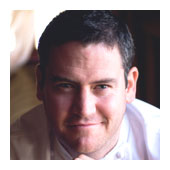
Why did you buy Winteringham Fields?
I knew I wanted to go back into fine dining after years spent in Michelin-starred kitchens when I was younger, but I didn't want to risk it all up front.
After buying the Woolpack Country Inn [in West Yorkshire] in 2001 we built it up to a restaurant with rooms. I came over to lunch at Winteringham Fields, thought it was the kind of place I'd like one day, and then found out it was for sale.
My first reaction was "No way, I wouldn't be stupid enough to do that". But the more I thought about it, the more I thought that clever businessmen always buy good businesses. Why would you take on a run-down one? The only worry was that it was mine to mess up.
Friends and family suggested I start my own business and build up my own accolades from scratch. However, if it takes me 10 years to do that then it's 10 years of scrimping, saving and grafting to build a reputation, whereas Winteringham Fields already had the name.
Were you tempted to change it?
I think keeping the name was one of my main strengths. It was important to embrace the history of the place. I've still got dishes on the menu that bear Germain's [Schwab, the former chef-patron] name - my hare royale is called hare royale Germain Schwab because I practised the dish with him a number of times prior to taking over.
How did you prepare for the takeover?
I was everywhere. I was front of house with Annie [Schwab] and in the kitchen with Germain. It gave me a big insight into the operation, which was very important.
Were you deterred by the idea of taking over an institution?
The main thing was to maintain customer satisfaction. Over the first year I changed virtually nothing, just a small tweak here or there. We had the same team, with Robert Thompson in the kitchen. We knew we would lose the two stars but Robert is a great chef and we were hopeful we might get one back, which we did.
Did customers come with high expectations?
When Robert left and we lost our one star, that was more worrying for me than when Germain left because it was the first time in 15 years that we had no Michelin stars.
But 2008 was one of our biggest years, and one of the best turnovers since 2001. I thought it was the Michelin stars that were dragging the foodies from London but we did just as well without any.
We're a restaurant that is the most expensive in the UK at our level of accolade - because the price structure was built around the staff structure and so on, I didn't want to change the prices - yet we're still busier than ever. Whether people are paying £10 or £1,000, they want to feel they are getting value for money and we are still offering them a great night out.
However, I've learnt you shouldn't buy somewhere like Winteringham Fields banking on Michelin stars to bring you business because one day you might lose them.
What was it like taking over a team assembled by someone else?
Easier [than starting from scratch] because I was here for a year and did three months solidly before taking over. I could take the staff out for meals and speak to them one-on-one.
I couldn't have bought a business from a nicer couple than Annie and Germain. They helped in every way that they could, and still do now, because the last thing they want to see is Winteringham go down the pan.
What would you do differently if you did it all again?
I wouldn't make one person bigger than the business. I was keen to highlight having Robert in charge of the kitchen so that people would think nothing had changed too drastically even though Germain had left.
But highlighting a member of staff like that means that when they leave it knocks you for six. I didn't want other big name chefs to come, get a Michelin star, leave and so on.
The best thing I ever did was go back into the kitchen for the first time in six years and take control of the business from there. If I can get stars back then that is my success and it's for the long term.
Alan Murchison: "The key is to exceed people's expectations and leave them wanting more; that was our mission statement in 2001 and it is still the same now"
TIPS FOR TAKING OVER FROM A BIG NAME
Seek the advice of your predecessors
The chances are they won't want to see the business they built up go down, so will be ready with help and advice. If you can, do some shifts and go through the books before you start
Use as much as you can from before The previous business model obviously works, so don't throw it away
Keep the name
The brand recognition your predecessors built up could take years to replicate
Familiarise yourself with the team
You will be filling the shoes of their mentor so get to know them to ease any transition
Be brave
Don't be scared to put your own mark on the restaurant but make sure that whatever you do exceeds customers' expectations, which will be very high already




